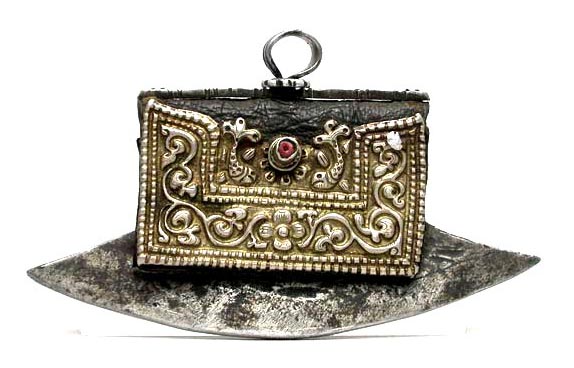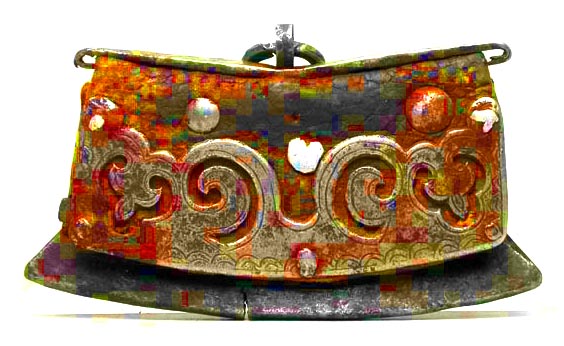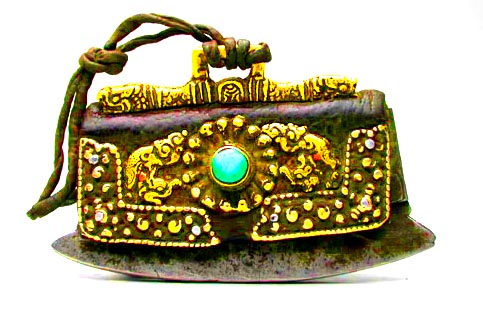
"Mechak" is Tibetan for an iron edged tool used for creating sparks to make fire.
Mechak Center's mision is to promote and cultivate contemporary Tibetan art that has the potential to ignite
a renewal of Tibetan culture.
Mechak's goal is to create a community of Tibetan artists from what is currently, a few isolated individuals
making art in different parts of the world. The logical extension of this work will be the building of artistic and
cultural bridges to artists working inside Tibet. We believe such an effort will contribute profoundly to Tibetan
society's cultural vibrancy and growth.
The 'modern' art emerging from traditional societies is a new and exciting development in recent years, and it has played
a vital role in reinvigorating the culture in those societies. It is an art that explores its own culture while remaining open to
external languages of expression, and therefore accessible and in dialog with the larger world.

The symbiotic relationship between art and society doesn't necessarily rely on
the direct viewing of the art, but also through its influence on and cross pollination with the
work of writers, film makers, musicians and other storytellers. Artists working for individual
self-determination within their culture and within their time the greatest force and catalyst for a nation's cultural renewal.
And a renewal of culture must occur before any meaningful political renewal.
Mechak envisions a new Tibetan Art that can speak to the psychic turmoil that the Tibetan people are undergoing today,
and engage Tibetan society in a dialog between the past and our present cultural surroundings, whether it be in Tibet
or in exile. An art that can create spaces that don't yet exist, enable the exploration, shaping, and defining of what we
become as a culture, and how we maintain our spiritual center even as the edges of our worlds move.
Contemporary Tibetan Art has the potential to process new images, ideas, and visions of ourselves and our changing
world and perspectives, providing a crucial counter balance to the overwhelming influences from Chinese,
Indian and Western culture which few young Tibetans are equipped to evaluate and assess fully before assimilating
them wholesale into their lives.
 The primary focus of Tibetan efforts in exile towards cultural expression for the last 50 years
The primary focus of Tibetan efforts in exile towards cultural expression for the last 50 years
has been the preservation of tradition, and it has been a remarkable success in many
ways. But we live in a world where we cannot successfully survive as a culture if we are
continually looking to our past. In reality, the 'museumfication' of the real culture on the
one hand, mass production of forged cultural artifacts on the other, and the people themselves in a free fall of cultural
changes beyond their control, is a peril that has doomed many other peoples, and threatens Tibetan society today.
Responding to all these factors, we feel Mechak can make a critical contribution to Tibetan society no matter what occurs
politically in the next fifty years.
"When you are finished changing, you are finished." - Ben Franklin
